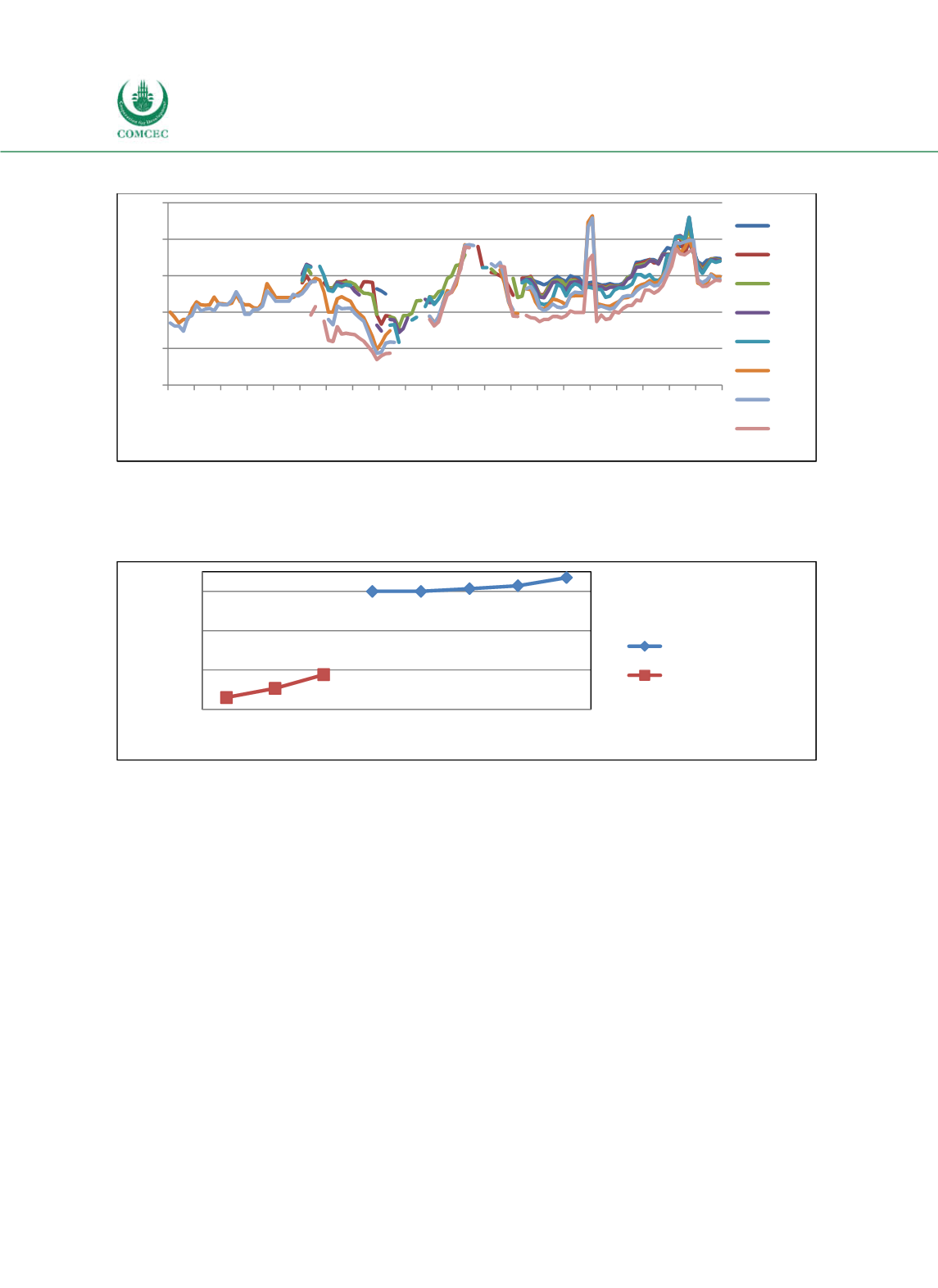

Improving Public Debt Management
In the OIC Member Countries
96
Figure 4-11: Uganda - Yields on T-Bonds and T-Bills
Source: Investing (2016), calculations by the Ifo Institute.
Note: Due to missing data some graphs might not be continuous.
Figure 4-12: Uganda - Yield Curves of T-Bonds and T-Bills (2016)
Source: Investing (2016), calculations by the Ifo Institute.
Although the history of largerscale Islamic banking in Uganda can be traced back to 2008,
when the BoU first received an application from an institution that wanted to operate as an
Islamic bank, the BoU legalized the roll out of Islamic banking products only recently (The
EastAfrican 2016). With the Financial Institutions (Amendment) Bill, Uganda set the rules for
Islamic banking in Uganda, for instance the creation of key governance structures such as a
sharia
advisory board (The EastAfrican 2016). The Bill also allows the government to issue
sh riah
compliant bonds and the creation of a special Islamic index on the Uganda Stock
Exchange (Mugerwa 2016). As part of the Rural Income and Employment Enhancement
Project, the staterun Microfinance Support Centre (MSC) plans to start Islamic MicroFinance
Loans by 2017 (Ojambo 2016).
Domestic debt market
Between 2006 and 2015, domestic debt represented less than 50% of total general
government debt (see Figure 410). Due to the HIPC and MDRI debt relief, which cancelled a
large amount of external debt, the share of domestic debt increased from 16.9% in 2006 to
48.4% in 2007. Between 2007 and 2011, however, the share of domestic debt decreased
steadily to 24.2% which can be attributed to new external borrowing used to finance several
infrastructure projects (IMF 2015a). The share of domestic debt has increased once again to
0 5 10 15 20 25
Mar06 Sep06 Mar07 Sep07 Mar08 Sep08 Mar09 Sep09 Mar10 Sep10 Mar11 Sep11 Mar12 Sep12 Mar13 Sep13 Mar14 Sep14 Mar15 Sep15 Mar16
Yield (in %)
10Y 5Y 4Y 3Y 2Y 1Y 6M 3M
14 15 16 17
3M 6M 1Y 2Y 3Y 4Y 5Y 10Y
Yield (in %)
Maturity (in years)
Government Bonds
Treasury Bills
















